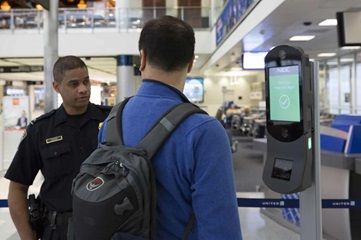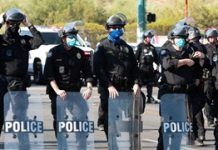The Security Industry Association (SIA) and the International Biometrics + Identity Association (IBIA) are pushing congress not to approve language in the Federal Aviation Administration (FAA) Reauthorization measure that would restrict the U.S. Transportation Security Administration’s ability to use facial recognition. A release from the SIA says the proposed ban is “an extraneous provision” that would “force the TSA to abandon its highly successful use of facial biometrics to verify required travel documents at security checkpoints.”
The SIA minces no words in its assessment of the proposed amendment, which it says is “based on ill-informed and spurious claims regarding TSA’s current use of biometric technology — claims that are completely and demonstrably false.” SIA says “there is zero evidence for claims it is or could be used for mass surveillance” and insists no biometric information is retained or shared in the aftermath of standard automated biometric passenger identity verification processes.
In their letter to congress, SIA CEO Don Erickson and IBIA Managing Director Robert Tappan point out that face biometrics are currently in use for traveller verification at TSA security screening checkpoints in more than 80 airports across the country. “The technology provides enhanced security, accuracy and convenience for travellers, without impacting existing privacy rights or changing privacy expectations,” they say. “This 11th-hour measure will compromise programs that facilitate the safety and enhance the travel experience of travellers across the nation.”
The safety of automated biometric passenger gates is one question. Their functional reliability is another story, as demonstrated by a technical meltdown at airports across the UK last week that caused chaos for travellers at border checkpoints. Edinburgh Airport, Birmingham Airport, Manchester Airport, Heathrow Airport, London Gatwick, London Luton and Stansted Airport all faced long lineups when Border Force’s facial recognition-based automated electronic passport gates failed.
Birmingham Live reports on a statement from the Home Office saying the technical issue that caused the system collapse was quickly identified and has now been resolved. “We have comprehensively reviewed the causes and will ensure this issue does not occur again,” says the statement. The 1:1 face matching eGates are once again functioning at all airports.








